Homage to crucial actors
HIC celebrated its 40th anniversary after the General Assembly in Quito (October 16, 2016), as part of the activities around Habitat III. This was a moving and inspiring celebration, a moment to remember 40 years of action, memories and achievements, fighting for the rights related to Habitat and social justice and to plan the future of the Coalition.
During this event HIC paid tribute to key actors in HIC history and together we remembered those who contributed to the work of the Coalition with a selection of texts and images and with inestimable contributions from HIC Members and Friends.
Unfortunately, 2017 was a tragic year for HIC since the Coalition lost other colleagues, some of them in tragic circumstances.
This section pays tribute to all of them.
Han Van Putten
Han (Johannes Gerrit) van Putten was born in 1922. He obtained his law degree in Leiden, and began his career as an official of the Dutch Office of Foreign Affairs.
Han van Putten was one of the founders of Habitat Committee in Stockholm in 1972 that lately became the Habitat International Council.In 1976, he coordinated the Habitat Forum in parallel to the Human Settlements Conference in Vancouver.On the occasion of an NGO meeting at the first session of the UN Committee on Human Settlements (UN Habitat), at New York in April 1978, the Committee elected him as its first President of the International Union of Local Authorities (The Hague), which undertook to host the NGO Committee’s secretariat.From 1978 to 1987, he assumed the HIC General Secretariat and in 1989 was elected as HIC President for a four-year term.Han was named HIC Honorary President in 2002.
In October 2006, in The Hague, Netherlands, HIC paid homage to Han in a special ceremony. Han last attended HIC global meetings at Barcelona, in February 2008, where the HIC Board and the General Assembly decided to grant him and Enrique Ortiz the distinction of being the first two HIC Wisdom Keeper. On 17 October 2009, HIC General Secretary Ana Sugranyes and HIC HLRN Coordinator Joseph Schechla visited Han in The Hague and presented him with the Certificate of Wisdom Keeper which reads: “Habitat International Coalition (HIC) Established in 1976, HIC Board convened at Barcelona in February 2008, bestowed the title of HIC Wisdom Keeper on Han van Putten to signify that he is a keeper of valuable knowledge, resulting from his commitment to HIC over time, of its evolution and the strive for people-centered and sustainable development of human settlements.
The Board confers on the Wisdom Keepers, the membership of HIC Academy and the privilege to enlighten HIC, on making the cities, towns and villagesof the world, places to live in peace and dignity for all”.HIC mourned the passing of Han van Putten with special appreciation for his wisdom, vision and many professional contributions to building the Habitat International Coalition from its very beginning. The Habitat International Coalition remains an important part of Han van Putten’s legacy and life’s work from which we all continue to benefit.
Benno Heinen
Benno. Heinen (Master of Political Economies) was the first Secretary General of DESWOS, the German Federation of Housing Corporations and later the German Development Assistance Association for Social Housing, founded in 1969. He was part of one of the first field missions to Africa and he was appalled by the living conditions in Ethiopia. He was so touched by the misery of the people, that he wanted to improve their habitat by promoting housing cooperatives with local communities. He also identified problems of housing co-operatives in Africa and suggested approaches for future action. Since this first field trip DESWOS had promoted the establishment of co-operative housing in Latin America Asia, Africa and Europe.
Benno concluded that housing co-operatives could make significant improvements to the living conditions of local communities as well as contributions to the development of housing in Africa if favourable conditions were created to facilitate their operations. These conditions include the following:
- Preferential allocation of land;
- Appropriate building standards;
- Appropriate building materials;
- Financial terms favourable to low-income groups;
- Encouragement for the formation of co-operatives;
- Provision of training facilities for officers and members of co-operatives.
Benno Heinen was the first President of HIC from 1978 to 1984.
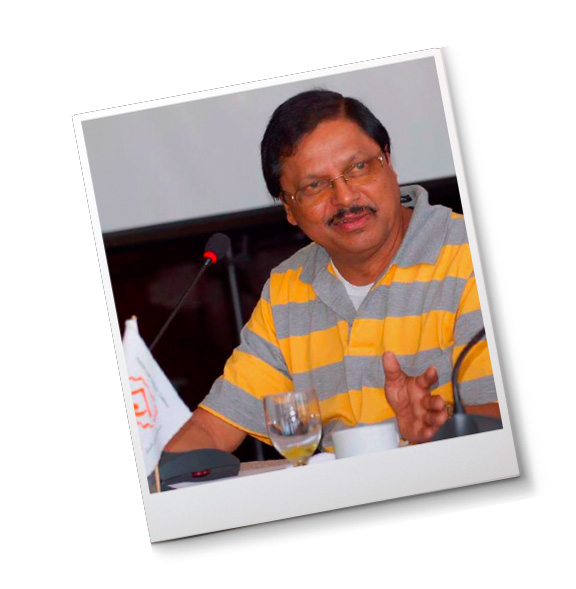
Rabial Mallick
Over the years, Rabial, who was born in 1950, worked with complete dedication to empower the urban poor community in major cities of India since 1979 (starting with Dharavi in Mumbai). He was actively associated with several organisations such as the Christian Institute for the Study of Religion and Society (CISRS), the Asian Coalition for Housing Rights (ACHR), the Leaders and Organisations of Community Organisations in Asia (LOCOA), the People’s Responsible Organisation of United Dharavi (PROUD), the Institute for the Development of Education and Action(IDEA), the People’s Union for Development and Reconstruction (PUDAR), as well as Habitat International Coalition (HIC) for three decades.
In CIRS (founded in 1957), Rabial played an important role in social movement all over the country involving women, tribal and minorities. It had a wide network involving hundreds of NGOs and CBOs with whom there was regular interaction in developing social movements and improving the living condition of the marginalised and backward sections of society. The Community Organizing programmes were the principal area of activity of CISRS and has been working for improving the living condition of the urban poor in different cities in India.
During this long period, Rabial was National Coordinator of the Shelter For the Homeless National Forum in India. His work included liaison with national NGOs and CBOs of India in their fight for housing rights and also with providing them their basic amenities of life and living.
In addition, he was the founding organiser and consultant of Proud and Power in Mumbai and the Slum dwellers coordination committee in Kalkotta, where he fought for housing rights, mobilized the urban poor and ensured their sustainable development. He was also the founding member of the Asian Coalition for Housing Rights (ACHR), City Net, LOCOA, and the India Habitat Forum (INHAF). Rabial was also effectively involved in the work and actions of Board Members from Asia Habitat International Coalition (HIC) since 2006, members of the India organizing Committee of the World Social Forum (WSF), NGO Advisory Committee Member, Planning Commission, Govt. of India; and Honorary Director-cum-Secretary of IDEA. He had an extensive range of accomplishments, as well as dedication and work to defend the rights and the dignity of the poor and the homeless in West Bengal, India and all over Asia.
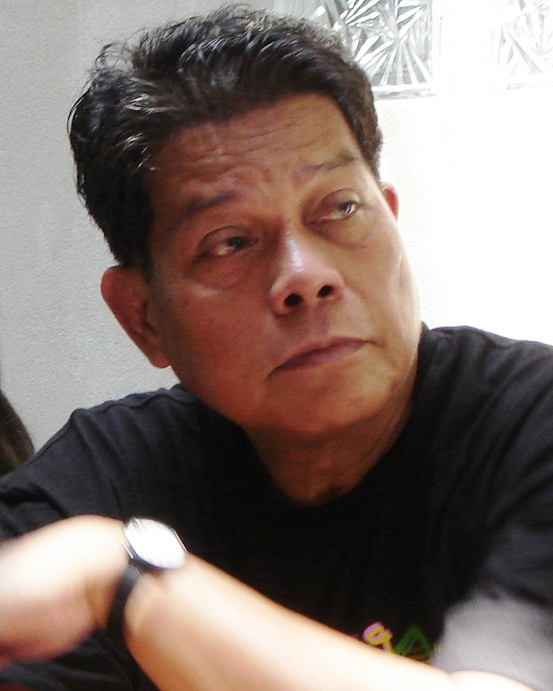
Ted Añana
Teodoro “Ted” Añana deserves well of his country. He served the poor people of Bohol as a parish priest; he worked in the National Secretariat for Social Action at the Justice and Peace desk; he served with the armed militants of the Martial Law era; and finally he worked with us at Urban Poor Associates from 1992 to the present. Denis Murphy and Ted founded UPA. He gave special care to poor families facing eviction. We must honor a man who has given nearly 40 years of his life to his people. Ted worked with Urban Poor Associates, a HIC Member based in the Philippines.
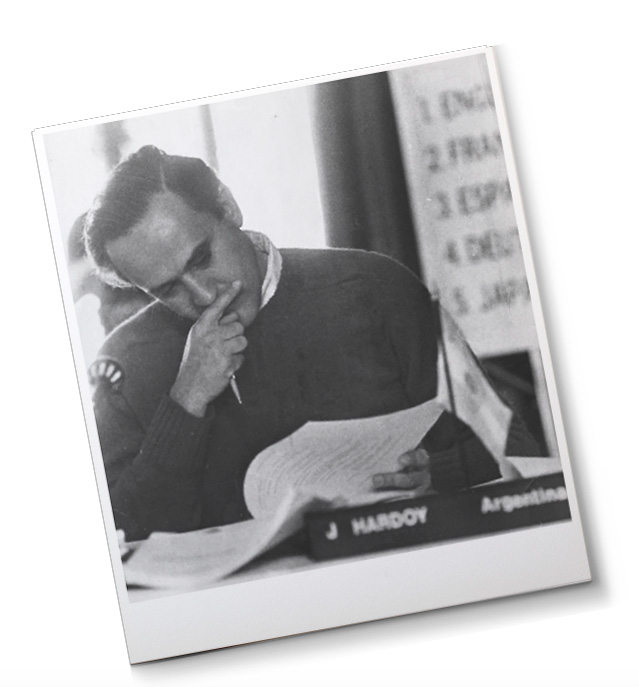
Jorge Enrique Hardoy
Jorge became involved in Habitat I following an invitation by Barbara Ward, who at the time was director of the International Institute for Environment and Development (IIED). Together with a group of 24 renowned specialists including academicians, professionals, politicians, environmental activists and union leaders, Jorge participated in the writing of the Vancouver Declaration, a text which influenced the recommendations later included in the conference’s official document. He also participated in and was a speaker at the Habitat Forum —the conference organized by civil society in parallel to the official event.
Jorge was passionate about everything he did. He was constantly reviewing bibliography, facts and reviews and this took him to rethink issues and expand horizons. He always worked with humility, acknowledging the fact that contributions to knowledge were the result of the more than often anonymous efforts of many people. He strongly believed in the goodness of people and personal loyalty, while his open spirit, capacity for identifying, integrating and connecting new issues and approaches and his great ability to summarize are worth highlighting. With a dedicated strive to be inclusive and organizational, he established networks, built bridges, brought people together, incorporated new people, organized seminars, set up publishing houses and magazines, opened institutions and published reviews and books in a tireless manner.
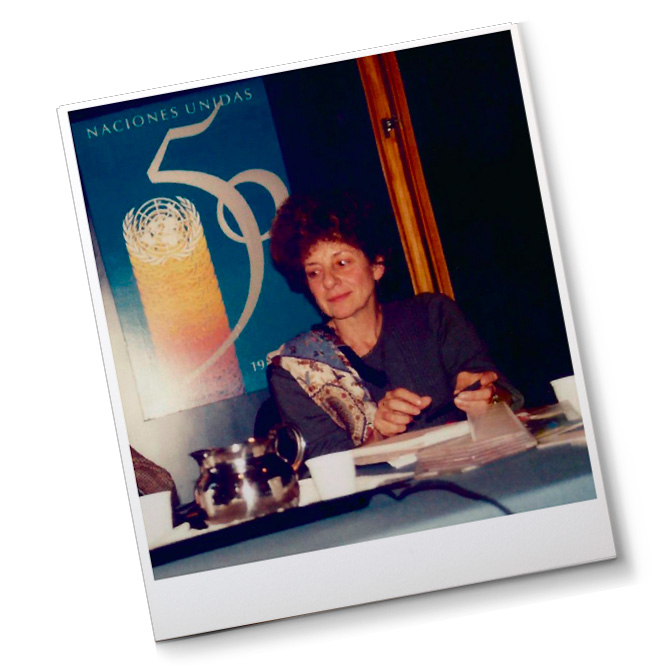
Hilda Herzer
Hilda was an outstanding pioneer and leader in the field of urban studies in Argentina. Sociologist and recognized professor and researcher at the Gino Germani Research Institute and Social Sciences between 1989 and 1990, she served as director of the Research Institute of the Faculty of Social Sciences at the University of Buenos Aires. Throughout her career, Hilda produced a rich body of research and publications on environmental and urban issues, which received recognition both locally and abroad. She was a model researcher and a great trainer of research groups, which remain an important part of her legacy.
Her works on environmental deterioration and risk management in Argentina —such as her pioneer works on flooding in Resistencia— were fundamental in providing the basis for much of the later research work on disasters carried out throughout Latin America. Her contributions were essential to understanding the society-nature relationship within the historical construction of the disaster. Reading Hilda’s works helps us understand that disaster and poverty as well as wellbeing and richness are the result of the actions of men and women, and that these actions are assembled as social relationships.
In the search for other organizational systems which could help to expand views and accompany social processes, Hilda founded CENTRO in 1990. From there she gave boost to the focal point for the Región Sur of the Network for Social Studies on Disaster Prevention in Latin America and for the Research and Action Network for the Local Development of Latin America.
Thanks to her broad international career, her mastering of several languages and her great ability to act as a liaison between various actors, Hilda became one of the main figures in drawing up HIC’s strategy by the end of the 1980s when the Coalition decided to base its headquarters in the South (Limuru, 1987). Later, Hilda served as Representative in HIC’s Board and became a strong pillar for the General Secretariat, both when in Mexico and in Chile.
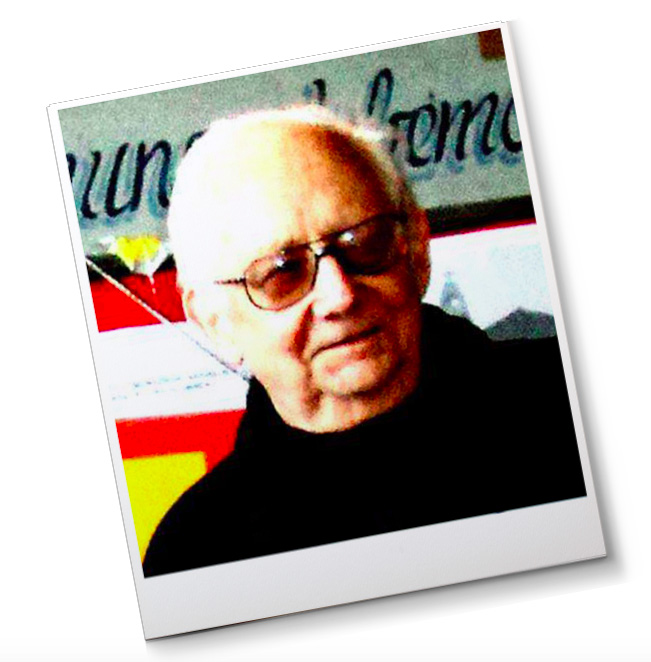
Padre Pichi
Priest of the Villas, José “Pichi” Meisegeier took over Father Carlos Mugica’s work in Villa 31 of the Retiro district in Buenos Aires.
Pichi was born in Germany. As a Jesuit priest, he decided to devote his life to the poor, which took him to work at the chapel of Saldías —a sector of the villa— and later, after Father Mugica’s assassination, to replace him at the Cristo Obrero Church of that same villa. For Father Pichi, pastoral work consisted in “bringing the neighbours together for noble and fair causes, such as the defense of human rights —including the right to housing—”, the neighbours of Villa 31 explained. “He always supported us, the poor; always”.
In the middle of the Argentinean dictatorship, Father Pichi helped the neighbours who were violently evicted from their villa. He later helped them set up cooperative housing projects in the outlying districts such as Derqui, San Miguel and José C. Paz where the people had been strand with no type of support. During his last days Father Pichi helped urbanize some of the blocks in Villa 31.
Father Pichi’s main concern and one also shared by other priests of the villas was the creation of cooperatives, such as the cooperative Copacabana —a self-managed organization that helped many families obtain a house by their own means.
Father Pichi brought together neighbours of the Villa 31 and university students, who devoted their time to the difficult task of urbanizing the enormous settlement in the Retiro district, and “he was always very sincere; he always told us the truth, even when it hurt (…). He always tried to bring us together and treated us with respect”.
Sedeca is one of Father Pichi’s creations. It has guided popular organizations in their strive for a decent life for more than 30 years and was Father Pichi’s home until his death. He also felt at home in the Center of Social Research and Action (CIAS) of his Jesuit colleagues and the Fundación Vivienda y Comunidad. But above all, his place was with the dwellers of the villa’s settlement. As Father de la Serna said, “there is a very large number of people who are probably unaware that they have a house today thanks to Pichi”.
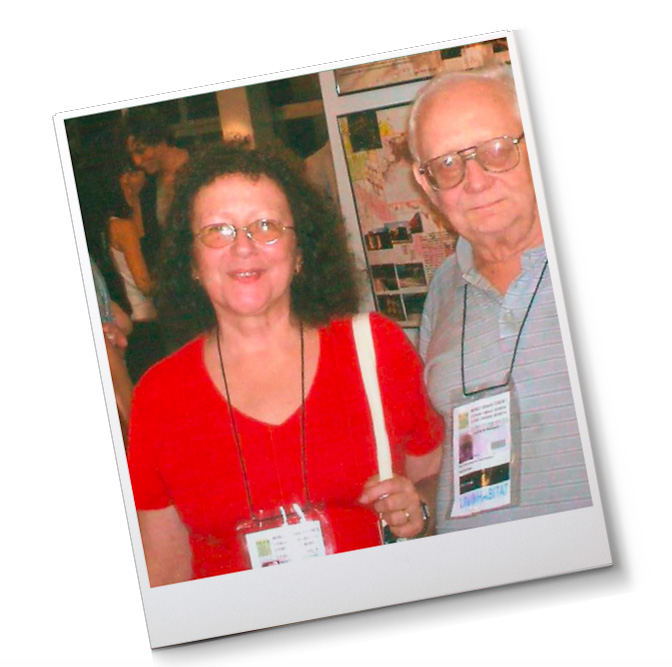
Marisa Solari
Only by hearing her speak one could tell Marisa was neither from Buenos Aires nor Argentinean. Her unmistakable tune immediately evoked her origins: Lima, capital city of her beloved Peru. She came to Argentina after having founded, promoted and developed a very interesting experience: Minka, an NGO devoted to exporting rural and indigenous craftwork from the Peruvian mountain range and jungle to the social and solidarity markets of Europe, USA and Japan. Minka received the award for Peru’s main group of exporters of craftworks on several occasions, an activity in which Marisa continued to work even after leaving Peru.
While in Peru, Marisa was also politically active with groups closely related to the Peruvian alliance of leftist-political parties Izquierda Unida, taking on an active role consistent with her idea of transforming the oppressive social relationships which subdued most of Peru’s inhabitants. With her partner and daughters, Marisa settled in Argentina. From 1985, and following her collaboration with Adolfo Pérez Esquivel in the SERPAJ, she started working in the Secretariat on housing and poverty issues. Marisa adapted to the circumstances, but she always maintained a healthy non-conformism: “no transaba”, as they colloquially say in Argentina when referring to someone who does not “give in”. She always instilled teamwork, but led her teams with a planned determination.
Being a mother as she was, Marisa expressed her close and friendly spirit through her cooking. She loved sharing meals in which she had cooked delicious Peruvian dishes which she enjoyed cooking and which also helped her keep the memory of her beloved homeland alive. Marisa’s unwillingness to give in and her healthy non-conformism —understood as an ethical outrage— were key in defining the sense of her life, in her defense of the poor, the homeless and landless people and when facing the critical conflict of our times: those who have nothing against those who continue to dominate them. Throughout the years, this ethical non-conformism gave consistency and transparency to Marisa’s work, to her whole life, to her unshakable will to persevere in giving herself to others. All this stemmed from the example set by Gustavo Gutiérrez, her beloved professor at the Católica in Lima, when she began her studies in Social Sciences.
This is what we think at Sedeca and we are grateful for your fraternal memory of Marisa.
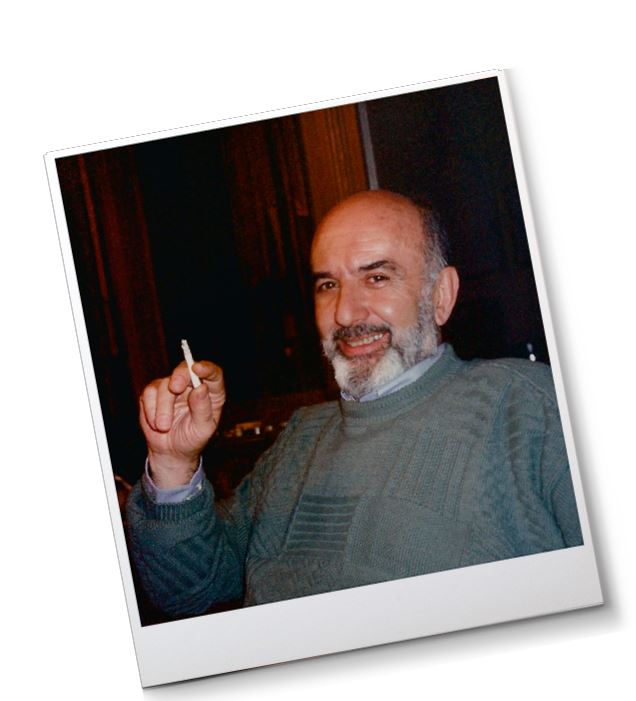
Fernando Cháves
Fernando Cháves, also known as Federico or “el Pelado” by many of his friends of the Argentinean exile, was a tireless fighter, a creative man, a promoter of ideas and an implementer of proposals. He was also known as “vip-vip” because he was always moving from one country to another, running to catch buses, trains and airplanes in order to meet friends, share ideas, listen, ask and suggest.
Fernando was born on May 20, 1936 in Buenos Aires. He lived in different parts of the world during his childhood, in Switzerland, Geneva and Paris; later, after graduating in Buenos Aires, he moved to Jujuy, Tucuman, Cuba, Spain, Italy, Mauritania and Ecuador, before returning to Argentina and finally settling down in Córdoba with Ana Falú, his second wife. Promoter of HIC, Fernando was member of the Coalition since 1984. He had five children and many grandchildren, whom he loved and who loved him greatly.
Throughout HIC’s forty years of history, Fernando Cháves played an essential role in the coordination of the Latin American offices. Together with Enirque Ortiz, Fruto Vivas and many others, he promoted this initiative and the international trajectory of HIC by bringing in other people and NGOs that were fostering transformations in the region. So many other beloved comrades come to mind, such as Fernando’s great friends Arturo Mier y Teran, our beloved Hilda Herzer, Horacio Beretta —who gave him support when he returned
to Argentina— and so many other people with whom he always engaged in a political dialogue.
There are many things to recall about this charming man, so many stories that it is difficult to choose only one. However, I cannot forget how proud he felt when the indigenous peoples of the CONFENIAE gave him a ceremonial rod. Our comrades Viteri and Ampang were among the indigenous leaders with whom Fernando promoted through ALAHUA (the Latin American association for Habitat, Urban Planning and Architecture), already in Ecuador, productive housing projects; the marvellous dream of the indigenous city in the Ecuadorian Amazon, communicating between social actors and the Amazon province of El Puyo, with Rafico Sancho, its mayor at that time.
A revolutionary social fighter, “el Pelado” was an architect committed to the people and their needs, as well as to urban and housing related issues. He was also a man with his own way of thinking, constantly engaged in intellectual reflection. He was university professor at the UBA, the UNT in Tucuman and the UNC in Córdoba. He was also UNESCO expert in disaster-related issues, member of International Red Cross, Housing Minister of the province of Tucuman and founder of CISCSA Argentina, an NGO founded at the beginning of the 1980s with the return of democracy.
It is difficult to summarize such a vital and committed trajectory. Among the many awards he received for his contributions to adequate housing projects between 1980 and 1985, we must highlight the First Prize for a Structural System for Housing and Buildings of Social Interest Using Wood, in Peru. Fernando was President of the Architect Society of Tucuman and member of the SEP (Ecuador’s Planning Society) in Quito. He wrote many publications and reflections, was a tireless activist, a committed politician and a much loved revolutionary.
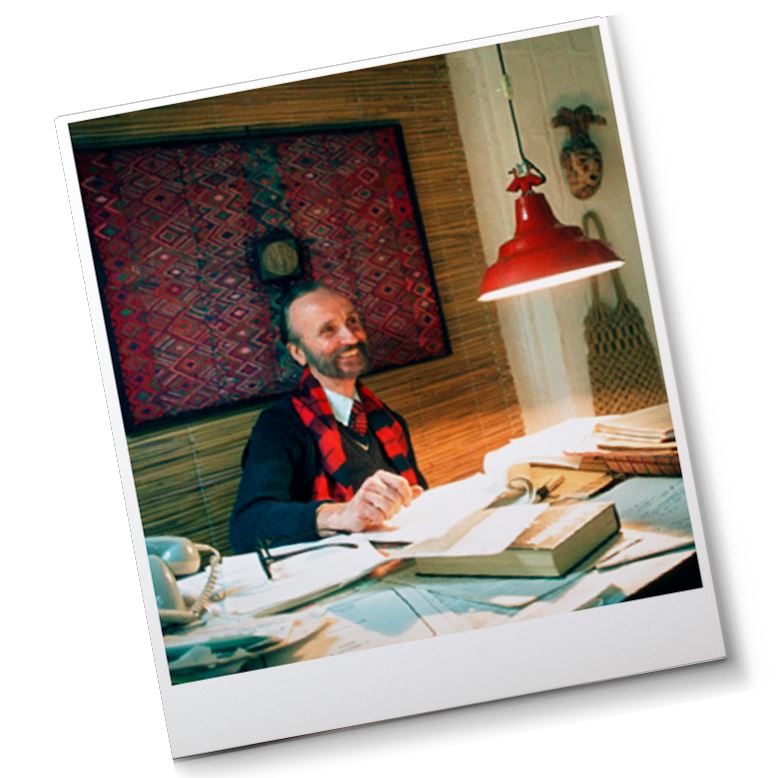
Horacio Berreta
Horacio Blas Berretta was a prominent architect who also worked extensively as a painter, muralist, sculptor, ceramist, stained-glass artist, poet and writer. He was professor at the FAU-UBA, Director of Studies at the University of Architecture of the Universidad Católica in Córdoba and Main Researcher of the National Scientific and Technical Research Council.
In 1967 Horacio founded the Experimental Center for Affordable Housing in Córdoba (CEVE) and in 1973 the Association for Affordable Housing (AVE).
In collaboration with a group of students, he launched an alternative research field around social-environmental issues. An initial lab-workshop space for the development of structural technology later also integrated the training and transfer of comprehensive technologies area and the evolution of results area which dealt with socio-organizational, law and economics and management, production and dissemination issues.
Constantly in contact with the dwellers of the most impoverished neighborhoods, they organized cooperatives and self-construction groups in workshops to produce construction materials.
He produced an extensive body of writings among which “Vivienda y Producción para las Mayorías”, a book which is still a reference for the people who work on popular habitat. The ideas expressed in a pictorial manner go from a world vision to the description of specific problems, from drama to hope, from theory to practice, poetry, reflection and committed praxis, summing up his Christian and social humanist ideology.
Horacio and his team received many national and international awards.
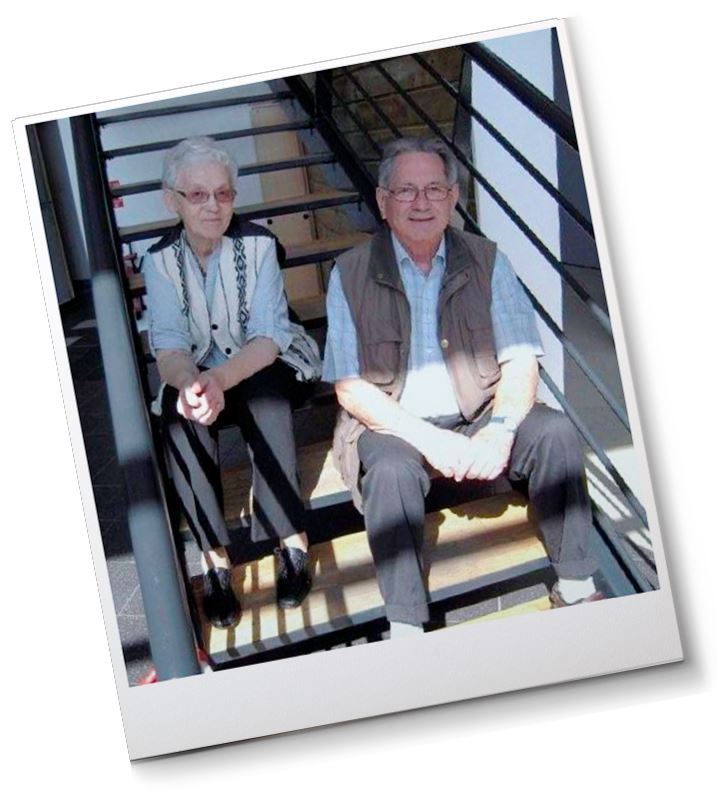
Claudio and Nelly
Father Claudio Faivre Duboz and social worker Nelly Evrard, Claudio and Nelly to all of us, made a lasting impression in Rio Negro, Argentina.
Both of them marked an essential line of work with outstanding projects such as “Un techo para mi hermano” (A Roof for My Brother), the Banco Popular de la Buena Fe and the Pastoral Carcelaria, among many others. They led or participated in an endless number of social initiatives which ranged from working with migrants, indigenous people, unemployed and prisoners, to activities related with the defense of human and social rights.
The Moroccan priest of French nationality and the Belgian social worker arrived to Argentina separately at the end of the 1960s and beginning of 1970s. After almost forty years which left a strong impact in their lives, they considered Argentina and Rio Negro to be their second home.
Nelly was a Belgian social worker who arrived to Argentina in 1969. She was arrested by the military dictatorship and upon her release she travelled to Choele Choel, where she met Father Claudio and they started working together. Claudio was born in Morocco. He studied Theology in Lyon, France and travelled to Argentina in 1972. He initially came for five years and stayed thirty-five. He served as a priest in Chaco, Formos and Rio Negro.
In 1986, following a call by the then Bishop Miguel Hesayne for an initiative which gave response to the needs of families burdened by their housing situation, the diocesan program “Un techo para mi hermano” was created, under the bishopric of Viedma. The first actions of the program consisted in going to the municipal authorities with this group of families to request for land. This was done in November 1986 and in May 1987 the bylaw giving 17 land tenure plots to the “Pro-housing parish commission” was passed. Two years later, the Bishop suggested Claudio devote himself exclusively to this program, a task which he undertook with Nelly and a group of technical experts living in several cities of the province.
After 12 years of hard work and as a result of the qualitative and quantitative territorial development, on August 7, 1999, the members of the program decided to become a Civil Association. The “Un techo para mi hermano” Civil Association has been working now for more than 30 years all over the Rio Negro province. It is a model in the Patagonia region of work carried out with marginalized communities.
Claudio and Nelly are distinguished citizens of the province of Rio Negro. They arrived to the country more than 40 years ago from Europe to work with the most impoverished sectors. They returned to France some years ago and Nelly has since passed away, but the lasting impression that they left here will live on.

Jeaneth López
For 17 years, Jeaneth devoted all her efforts to causes related to popular housing in Colombia. In Fedevivienda, she worked throughout the years accompanying processes of social production, both within housing projects and in the federation’s management team.
She made her main contributions as the leader of initiatives and of the education program which came to cover a range of issues from self management to territorial planning and land policies. The impact of this work still lives on in the training of hundreds of social leaders and professionals and of several groups within the public administration in Colombian municipalities. Jeaneth always collaborated in all HIC–AL’s initiatives and projects with great enthusiasm, affection and solidarity.
Her professional talent was always accompanied by her incomparable human warmth, for which she will always be remembered.
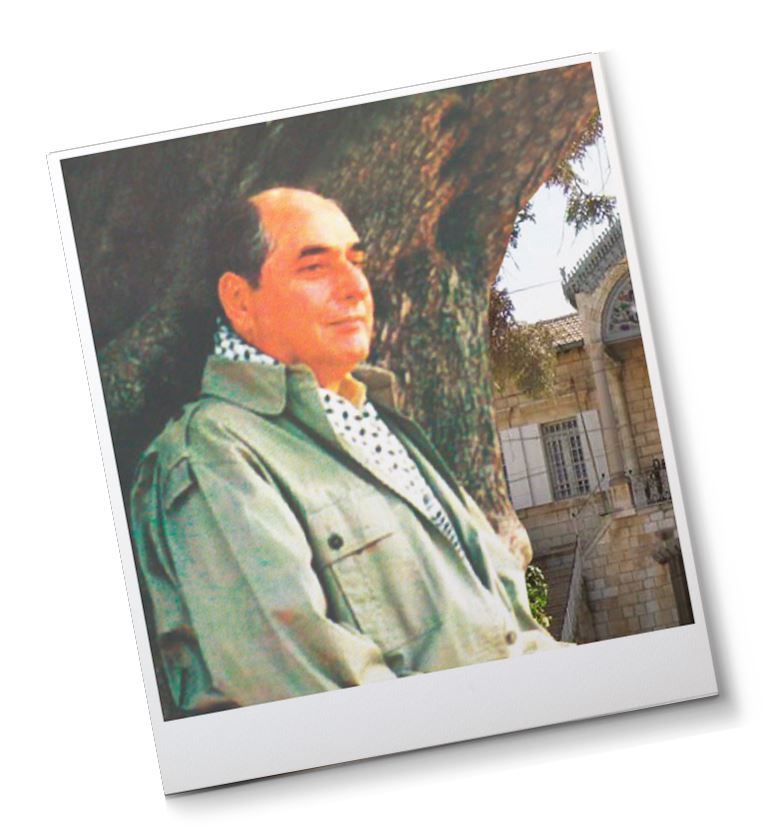
Faisal Husseini
From 1982 to 1987, Israel’s occupation forces repeatedly placed Faisal under house arrest and banned him from leaving the city. He was imprisoned several times from April 1987 to January 1989, but remained active in the First Intifada (1987-1993).
In late 1980s, Husseini, in coordination with commanders of PLO, decided to enter a new phase of Public Struggle that is based on the resolutions of International Legitimacy for the sake of establishing a Palestinian State with Jerusalem as its capital next to an Israeli state.
He became member, and later head of the Palestinian delegation to the Madrid Middle East Peace Conference and subsequent talks, led the PLO’s Fatah faction in the West Bank, was a member of the PLO’s Executive Committee and PA Minister without Portfolio. After the PA’s creation with the Oslo Accords, he became responsible for the Jerusalem file, while the status of the city was postponed to the second phase of the Accords and the “Final Status Agreement”, which never were reached.
Faisal’s last official post was Palestinian Authority Minister for Jerusalem Affairs as of 1994. Faisal Husseini died of a heart attack in Kuwait on 31 May 2001, while trying to mend relations between the Kuwaiti government and the PLO, which were broken at the time of the 1991 Gulf War. Husseini was buried in a family tomb near the Dome of the Rock, in a funeral attended by thousands. Following Husseini’s death, Israeli police seized his headquarters, the Orient House and its branches, which Israeli forces looted and continue to occupy to this day.
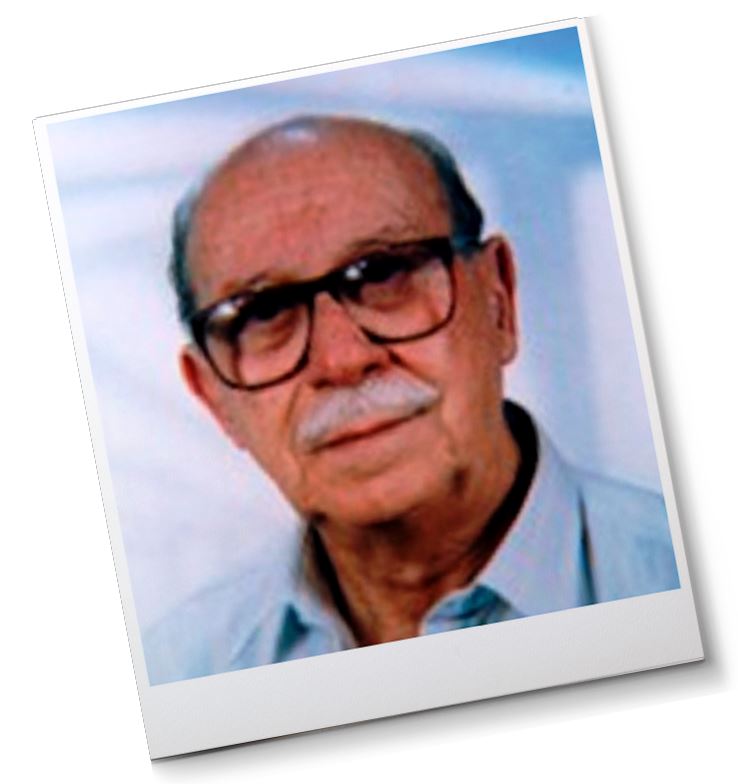
Mansour Kardosh
Mansour Kardosh (1920 –1998) was a Palestinian hero and defender of the land against colonization and land-grabbing by the Zionist forces that became the State of Israel in 1948. In 1948, he was a member of the National Committee in Nazareth, which oversaw the organization of resistance in the city. He was one of the catalysts of popular and worker consciousness in the awakening of protests against the 1956 tripartite (British, French and Israeli) aggression against Egypt, which was accompanied by Israeli massacres inside Palestine, notably the Kafr Qasim village massacre in October 1956.
Mansour worked with Saleh Baransi in 1956 to form the Popular Front, in cooperation with all progressive forces for the defense of the rights of the Arabs against the policy of the Zionist aggression and its repressive practices, displacement and racial discrimination and humiliation. Despite significant progress, in 1958, after the union of Egypt and Syria, the Communists in Iraq, Syria, Egypt, Jordan, Lebanon stood together against Abdel Nasser, the Popular Front and left nationalists split to set up al-Ardh (Land) Movement, embodying the Palestinian Arabs’ link to their land and homeland.
In 1975, he was one of the founders of the Voice Association as the first national cultural institution in the occupied territory, and remained its president until the its resources were depleted. Mansour participated in 1976 establishment of the Ansar Prisoner Association for the defense of political prisoners and support to their families, which he headed for several years.
He also participated in the 1976 declaration of the first Day of the Land, on March 30, to reject the occupation and to protest against the confiscation of land in the Galilee. He joined the 1981 establishment of the Development Association, which was the first national economic activity in the Arab sector within the Green Line (1949 Armistice border of Israel). During the Gulf Crisis and the outbreak of the war in January 1991, Mansour Kardosh and some old members of the Land Movement conducted an opinion survey that resulted in the establishment of National Socialist Front, which resembled the principles of al-Ardh Movement.
Mansour then initiated the establishment of the Arab Human Rights Association (HRA), which had an activity many external contacts led to sensitize Western societies similar to the suffering of the people of Palestine under the Zionist occupation and remained its president until his death. Arab Human Rights Association is a long-standing HIC Member since 1991, and was the focal point of the Palestinian Housing Rights Committee. HRA has been one of the most prominent contributors to the UN Human Rights System in its review of Israel and its system of institutionalized discrimination, dispossessing the Palestinian citizens of the Zionist state. In 1997 he was elected a member of the Municipal Council of Nazareth, representing the Nazareth League for Work and Change. Mansour is the author of several published books on the history of the Palestinian people and its culture. Mansour Kardosh died in Nazareth in 1998.
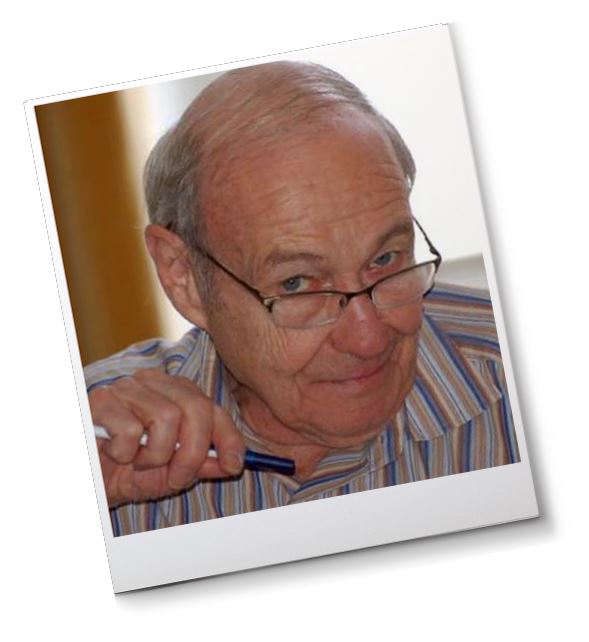
Nick Volk
Born in Teaneck N.J., Nicholas Volk soon decided that his goals in life included travelling the world and being able to sleep anywhere. Throughout his life, he fulfilled these goals by visiting 76 different countries and all continents (except Antarctica) and developed the ability to sleep anywhere from a boat deck on the Yangtze River to a grass hut in Central Africa.
Nick graduated from Harvard University in 1953 with a BA in International Relations and Affairs and later joined the U.S. Foreign Service in 1958. He and his wife Barbara lived in Southeast and East Asia, Washington and finally Canada, where Nick was posted to Toronto as a member of the U.S. Consulate. Years later Barbara encouraged Nick to use his talents of raising money to support those less fortunate. And so began his tireless crusade as an advocate for affordable housing and social justice. Nick was the driving force behind the Society of St. Vincent de Paul’s first foray into providing housing for low-income families.
Over the course of seven years, he created Vincent Paul Family Homes Corporation, a non-profit organization, as a way to mobilize the community and raise funds for affordable housing. Nick remained actively involved in this endeavor right up to his final days.
Nick started volunteering with Habitat for Humanity Toronto in 1993 and served on the Board of Directors from 1994 to 2002, and was the Chair from 1998 to 2002. After 2002, Nick continued his service to the Board in an advisory role. Nick was a tireless champion of both Habitat for Humanity and the families it served. Under Nick’s leadership, Habitat Toronto significantly increased its capacity to build homes for more families.
In addition, and over the years, Nick was Provincial Chair of St. Vincent de Paul, Chair of the Toronto Community Housing Corporation, a Member of Dixon Hall Community Services, the Ontario Non Profit Housing Association, the Rooftops Canada-Abri International Board, the Interfaith Social Assistance Reform Coalition, and long-time active Member of Our Lady of Perpetual Help Parish.
Nick’s ties with Habitat International Coalition (HIC) date back to his role as representative of the Canadian Housing and Renewal Association followed by his mandate as North American Region Representative to the HIC Board between January 2008 and December 2011. Nick became HIC Friend in 2006 and kept on making very valuable contributions to the broader Coalition. He participated in numerous HIC global events (Cairo 2005, Vancouver 2006, Barcelona 2008, Nanjin 2008, Cairo 2009, Belem 2009, Rio 2010) and he also volunteered for the Electoral Committees of the 2013 and 2017 HIC-NAM elections; Nick’s contributions were always very much appreciated.
Nick has been honoured with a number of recognitions. Notable among these is the Governor General’s Caring Canadian Award in 2003 for significant, sustained and unpaid contributions to the community in Canada or abroad, and the Canadian Housing and Renewal Association International Award in 2013 for outstanding work to advance international collaboration and dialogue among affordable housing leaders around the world and for contributions to international professional exchanges.
Nick was a restless fighter for social justice and the right to housing, a life-long supporter and friend of Habitat International Coalition. HIC Members and staff were very honoured to be his friends.
“Find a need. Ask what you can do to help. And do it”. (Nick Volk)
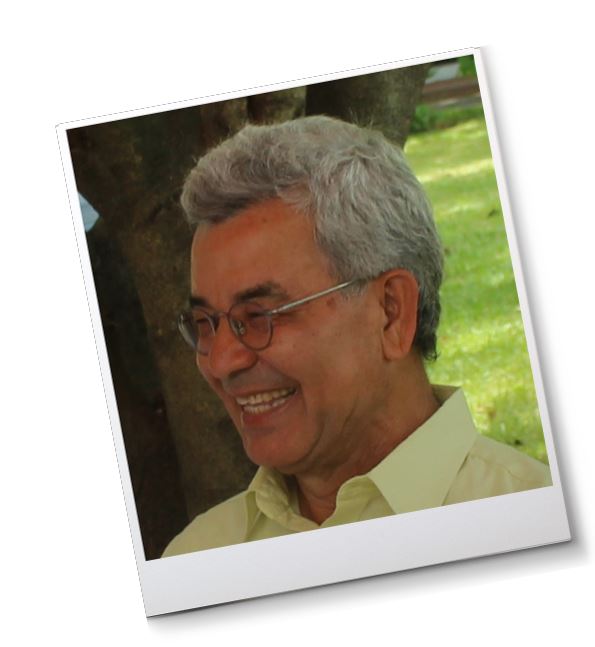
Edin Martínez
Edin de Jesús Martínez Ortega was born in Chalatenango, El Salvador, on August 1945. Edin undertook his Philosophy and Theology studies in the San José de la Montaña Seminar, between 1967 and 1973. In 1978 he graduated in Sociology from Rodrigo Facio University (San José, Costa Rica). He pursued his studies on European Cooperation in Rome, including study visits to Paris, Brussels, The Hague, London, Bonn and Geneva, as well as academic exchanges with each countries’ cooperation institutions, upon organisation by “Associazione Studi America Latina”(ASAL). Later, he studied financial technology for housing programmes at the DEG (Berlin, Germany) in 1983. Edin also complemented his education on foreign languages by spending some time in the United Kingdom and France. He was eventually appointed as Full Professor on Special Sociology at Universidad Centroamericana José Simeón Cañas, UCA, in 1984.
Between 1970 and 1986, he worked from different senior position at “Fundación Salvadoreña de Desarrollo y Vivienda Mínima” (Fundasal, El Salvador Foundation for Development and Basic Housing): Educational Unit, Social Action area, Planning and Studies Unit, and as the foundation’s Executive Director (1988-2009).
Was at that time that Edin became Member of the HIC’s Board, a position he held between 1988 and 1993. In June 2009, he was appointed Deputy Minister for Housing and Urban Development of the El Salvador government, a position he hold in an honourable and transparent way until May 2011.
Edin —as he was affectionately called by Fundasal staff— was loved by the communities he worked with, and fully passionate for improving El Salvador families’ environments through different working axis with the foundation. Edin fostered relations with cooperation entities. He also represented the foundation to national and international organisations, managed resources for programmes’ delivery, overseeing its appropriate use, always seeking to ensure Fundasal’s financial sustainability, and also promoting new policies and reviewing old ones.
His eyes would light up when he talked about his beloved wife Marise, to whom he referred as his best friend and partner of social struggles, family and sons. Fundasal and HIC deeply regretted Edin’s death on 24 July 2017.
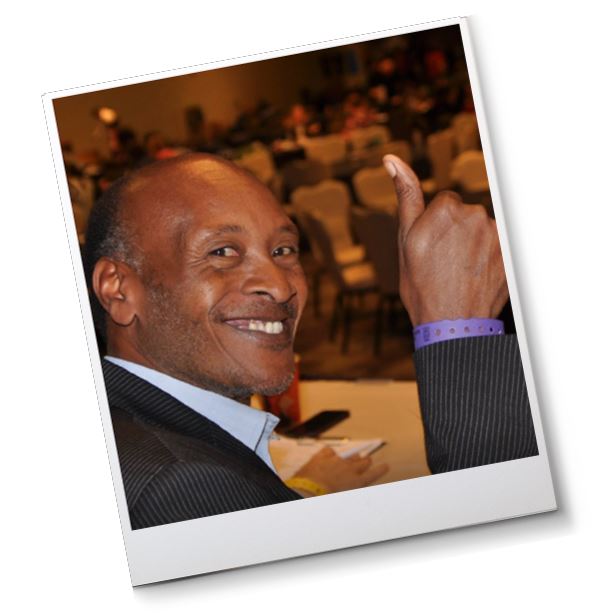
Kuria Gathuru
Kuria Patterson Gathuru, a senior staff member of Mazingira Institute (HIC Africa Focal Point), passed away in Nairobi on 15 November 2017. He served tirelessly on the international stage as a HIC representative from 2014, for the urban food insecure constituency of the Civil Society Mechanism for the UN Committee on World Food Security. He participated in HIC event in Nairobi. He was a mentor and trainer par excellence on the practice of urban agriculture.
He had been very sick for a while but he was always coming to work at Mazingira when he could. He gave his life to improving things for the people around him, especially the urban farmers and the informal settlement farmers struggling to produce food. His house and heart were open to all the farmers of Nairobi and Environs Food Security and Livestock Forum, and before that to many others through Undugu Society and the Presbyterian Church. To him all were equal. Since the 1980s he has worked to bring urban agriculture to the City of Nairobi government. And he succeeded.
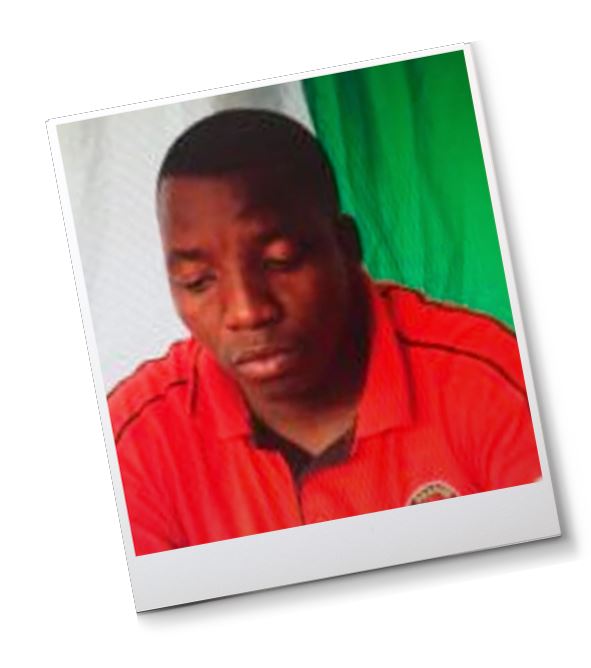
Sibonelo Patrick Mpeku
Sibonelo Patrick Mpeku was a leader of Abahlali baseMjondolo, a social movement of shack-dwellers living in South Africa’s informal settlements. He served as Chairperson of the local Sisonke Village branch, and as member of Abahlali ’s KwaZulu / Natal Provincial Council. Mr. Mpeku worked to defend the right of shack dwellers to basic services and political participation in Sisonke Village.
His murder is one of the multiple attacks that Abahlali baseMjondolo has suffered since its inception in early 2005, after a road blockade organized by residents of the Kennedy Road Shack Settlement in the City of Durban.
Abahlali baseMjondolo is a radically democratic, grassroots and entirely non-professionalised movement of shack dwellers whose membership has grown from the entire population of the 6 000 strong Kennedy Road settlement to the point where 13 entire settlements have voted to collectively affiliate to Abahlali and govern themselves autonomously from state politics.
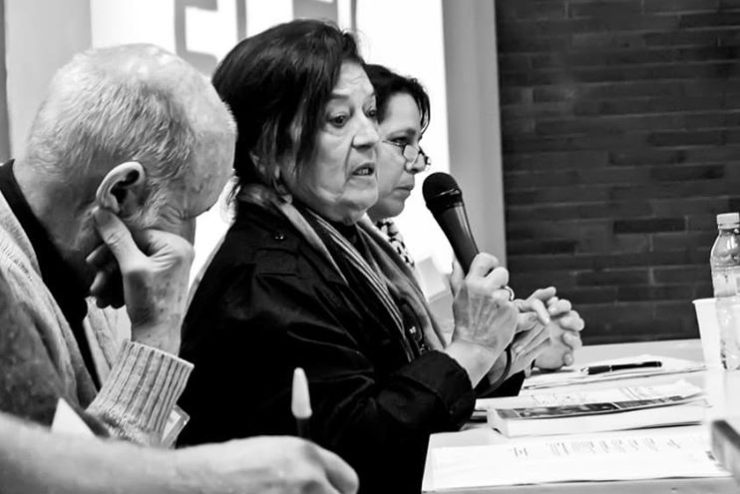
Selma Díaz Llera
Architect and Bachelor of Social Sciences from the University of Havana, she created, together with the Architect Rodolfo Livingston from Argentina, the program “Arquitectos de la Comunidad” (Architects of the Community) in Cuba, an experience that allowed to open paths and left a firm footprint for those who continue building an architecture not only as a tool but also as a service, and who understand housing as a right. In her professional career, her commitment with the communities, her alert and lively attention to discrimination, and her gender perspective have always stood out.
Committed to her country and her dreams of transformation, she worked at the Ministry of Planning from a very young age, working with Ernesto “Che” Guevara. Years later, Selma was a member of the Latin American and Caribbean Women and Habitat Network and the Habitat International Coalition (HIC).
She was always present in the conversations and exchanges of other colleagues from the Women and Habitat Network, returning in conversations and memories. In the words of those who knew her, “Selma showed her sense of humor, her anecdotes, her kindness: an exquisite, loving and firm woman”.We will have to care for the memory and honor her work and invaluable commitment to human rights in the Latin American region.
Committed to her country and her dreams of transformation, she worked at the Ministry of Planning from a very young age, working with Ernesto “Che” Guevara. Years later, Selma was a member of the Latin American and Caribbean Women and Habitat Network and the Habitat International Coalition (HIC).
She was always present in the conversations and exchanges of other colleagues from the Women and Habitat Network, returning in conversations and memories. In the words of those who knew her, “Selma showed her sense of humor, her anecdotes, her kindness: an exquisite, loving and firm woman”.We will have to care for the memory and honor her work and invaluable commitment to human rights in the Latin American region.
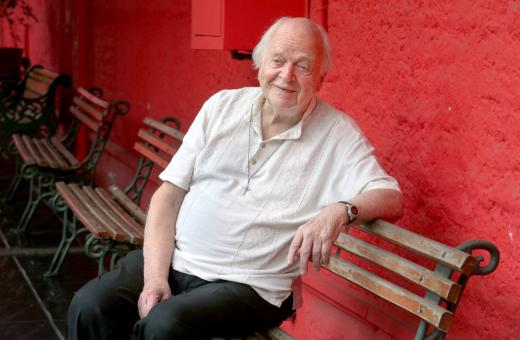
Josse van der Rest
A great figure in the struggles for land and housing in Latin America, Asia and Africa: the Cura van der Rest. His organization SELAVIP, Latin American, Asian and African Service for Popular Housing, is part of HIC. Josse van der Rest, of Belgian origin, joined the Society of Jesus in 1944 and was delegated to Chile in 1958, where he has lived ever since, when he was not traveling the world. In his fights against the authorities in the middle of the dictatorship, he was heard to shout: “We must play the clown so that these “weones” (a word that means guys in slang) understand something”. In the 90s, he invented an improvement intervention in the popular neighborhoods: breaking the inertia of precariousness, installing a piece on palafittes and thus facilitating the action of housing regeneration.
In the world, since the mid-1970s and especially at the first Habitat Conference (Vancouver, 1976), Josse van der Rest became known for his thundering voice, his laughter and smile, and for his very direct speech: “52% of the world without housing” was his introductory book to the subject of housing, with a large print run (1973) in several languages. It was his way of denouncing the overcrowded conditions suffered by most people everywhere. It is a denunciation that is now maintained in times of pandemics.
The international projection of Josse van der Rest and Selavip was multiplied by hundreds of trips, all over the world and in all the housing debates. He travelled light, with a bag hanging from his shoulder, in which was his pillow, a bible and the model of one of the 500 thousand mediaguas (a type of prefabricated social housing that can be easily moved) provided by the Belgian Foundation of the same name, which must have supported projects of dozens of HIC Members everywhere.
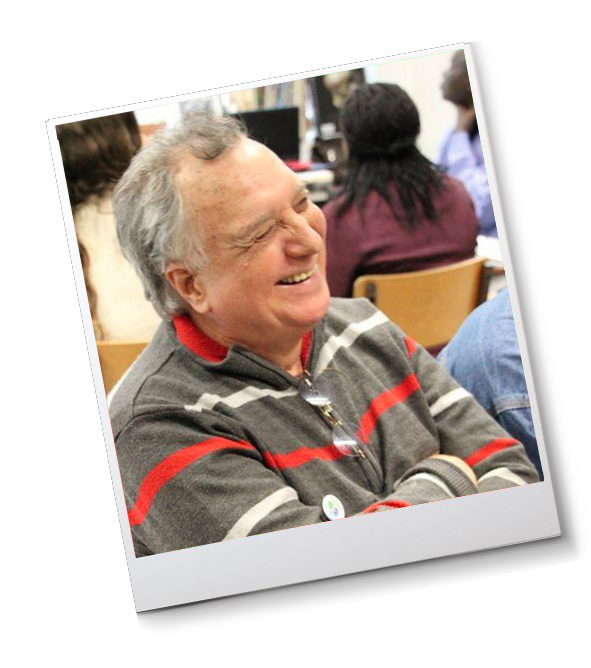
Paul Maquet Makedonski
Director and founder of Cenca Perú , Paul Maquet Makedonski leaves behind a great legacy in urban social struggles, valuable teachings and a history of deep solidarity and commitment to the most disadvantaged sectors.
Paul was and is an example of life for many of us who believe that another world is possible. From our Coalition, we are deeply grateful to have been able to share with Paul so many spaces and struggles, with the recent online exchanges at our last General Assembly in early February, where Paul participated.
Our support to Cenca Peru comrades and family members.
And thanks to you Paul, for all that you have shared and for your tireless struggle for social justice. You will continue to be a source of inspiration so that through participatory and collective work we can build just places for all.
Forever.
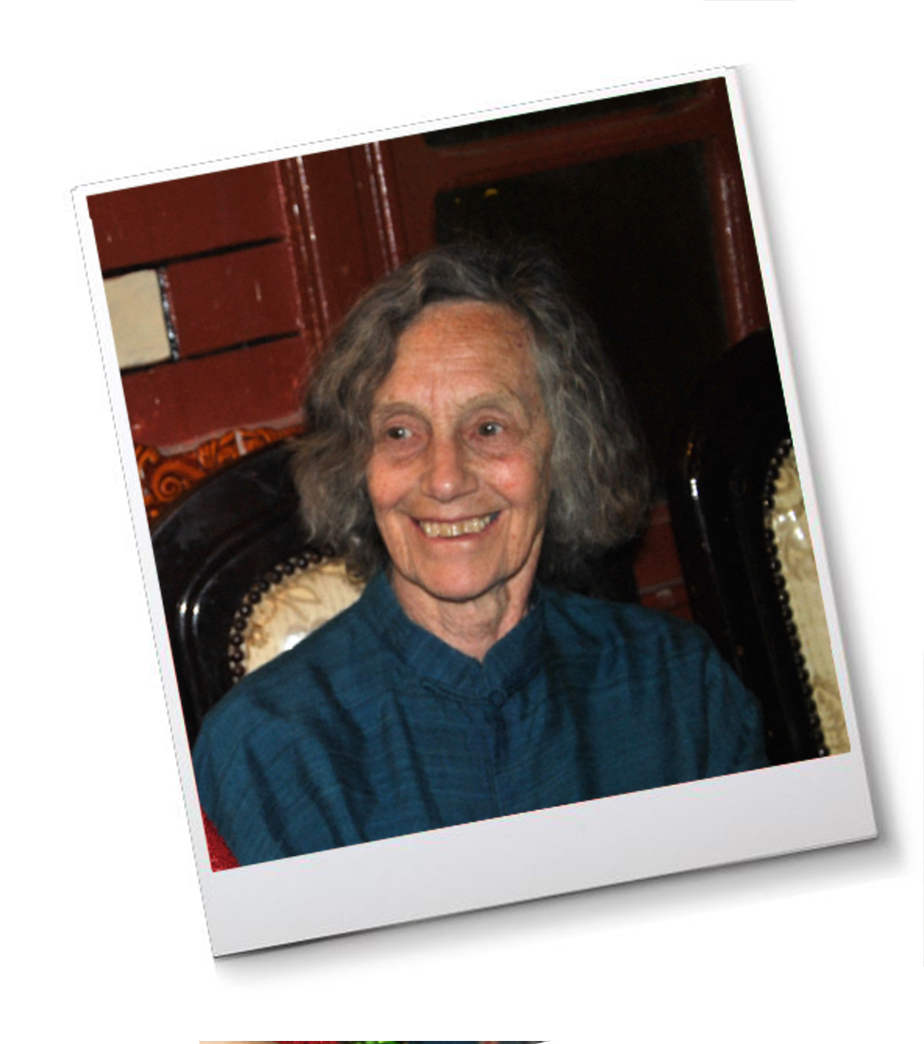
Katharine Coit
Katharine Coit was born in Boston, USA in 1931, but had been living in France since 1958. She studied first Political Science, and then Urban Sociology, and wrote a thesis under the direction of Henri Lefebvre on a comparison of neighbourhood associations in the U.S. and urban social movements in France in the 1970’s. She studied these movements as a participant observer and, since then, was active in several movements struggling in different ways for the right to housing and to the city. Kath worked two years as a consultant for UNESCO on a programme concerned with low-income housing in a team with John Turner. From 1993 to 1995, she was the coordinator for a project for upgrading slum housing in Ho-Chi-Minh City Vietnam.
Kath worked for Association Internationale de Techniciens, Experts et Chercheurs (AITEC) and Urbanisme et Démocratie (UDÉ), both HIC Members located in France which she was representative.
She was a critical writer and analyst of the right to the city in the world. Passionate about the social changes and the cultural dynamics in the urban neighbourhoods, Kath Coit was especially concerned about environment health, urbanization and women’s rights and empowerment. She travelled extensively and helped communities in the whole world.
She never missing a HIC General Assembly or other HIC Meeting, nor an opportunity to visit to the local communities, and most often accompanied by Patrick, her companion. Kath has been a Board Member from 2006 to 2010, she was always raising relevant and important concerns, fighting against inequalities and social injustice and focusing on the youth and most-deprived communities.
In 2006, Kath was the HIC Member representative who called for HIC to regularly monitor and report on forced evictions global, while the HLRN Violation Database was being developed. She will always be remembered for her enduring contributions to HIC.
Kath left us at the beginning of 2021.
RIP, dear Kath…
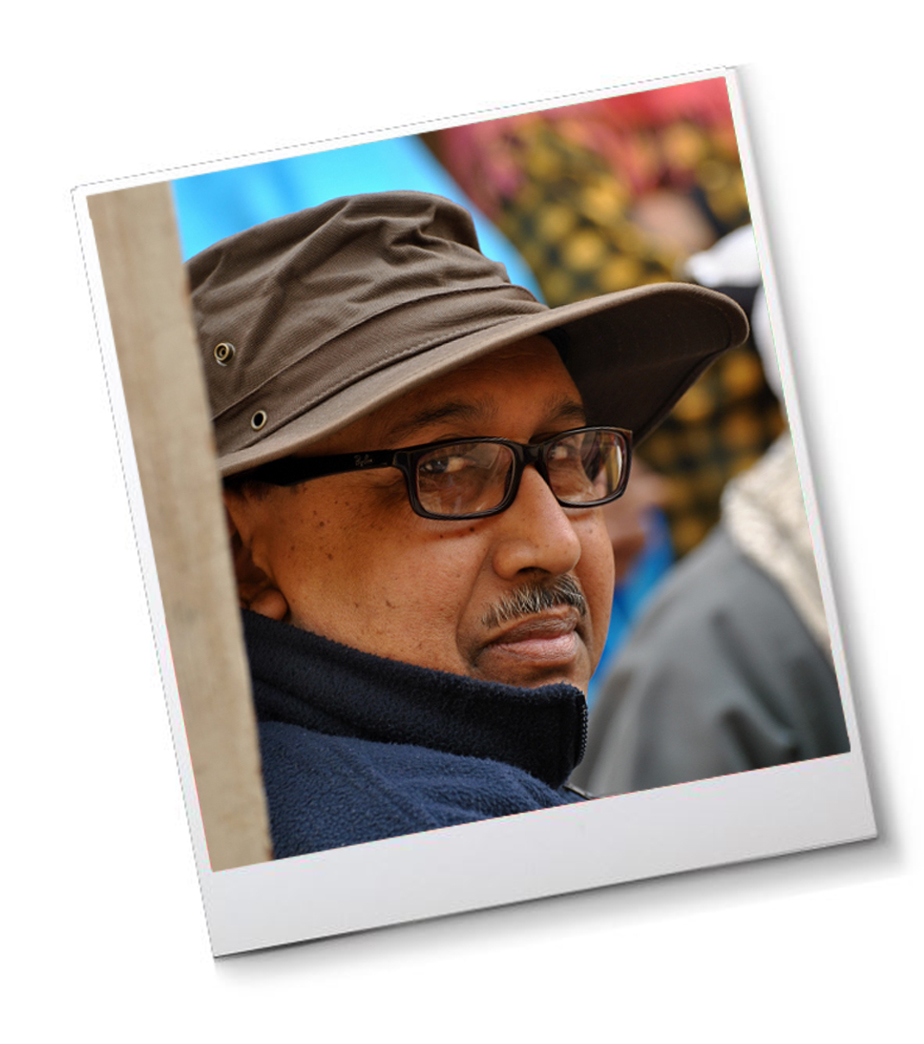
Abu Rayhan
Abu Rayhan Al-Beeroonee was the Founding Chairperson and CEO of Shelter for the Poor, in Bangladesh, a small and local NGO whose mission is to advocate housing and land rights for the urban poor, also permanently struggling and fighting against a funding crisis.
Shelter for the Poor was a HIC Member since 2004 and “Al-Bee” was one of HIC’s cheerleaders, one of our core leaders, most of all the World Social Forum. He participated to many of our HIC global activities.
With a dedication to monitoring and whistle blowing around all evictions in his city, he was always part of all rallies organised by slums dwellers and protests against evictions, and raising funds for housing projects. While putting pressure on authorities, and claiming access to land for evicted slum dwellers and their families, his organization took a lead in designing decent houses with very low-cost technologies (made of corrugated tin) for the evicted slum dwellers and their families with a separate toilet and kitchen.
Abu Rayhan, a modest and sweet fellow, remains an example for HIC Members for his devotion to practical problems and both local and global activism.
With a dedication to monitoring and whistle blowing around all evictions in his city, he was always part of all rallies organised by slums dwellers and protests against evictions, and raising funds for housing projects. While putting pressure on authorities, and claiming access to land for evicted slum dwellers and their families, his organization took a lead in designing decent houses with very low-cost technologies (made of corrugated tin) for the evicted slum dwellers and their families with a separate toilet and kitchen.
Abu Rayhan, a modest and sweet fellow, remains an example for HIC Members for his devotion to practical problems and both local and global activism.
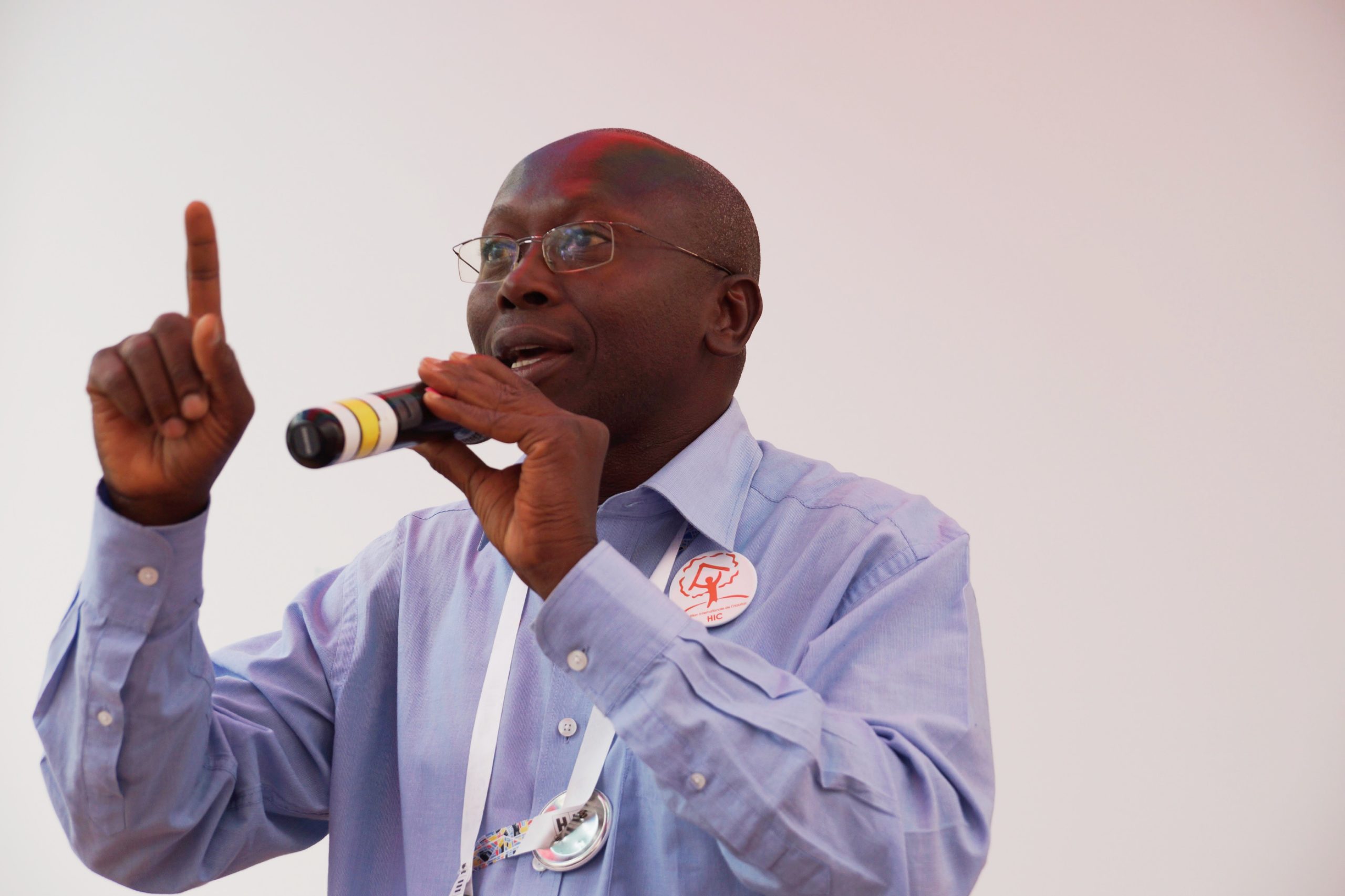
Malick Gaye
Our colleague Malick Gaye, Executive Director of ENDA Rup in Senegal, a close friend in the HIC Family, passed away on 16 November 2021.
Malick was an integral part of HIC since its inception, representing ENDA Tiers Monde from the early 1980s onwards and ENDA RUP. While representing both organizations he always brought a critical shift in thinking and acted on the imperative need to address urban challenges and environmental justice by drawing on local knowledge, innovation and capacity to organize.
Malick was a charismatic leader and a wise and principled man. He was a tireless fighter and advocate for a more just world for all and especially for the smallest and most marginalised communities. This is the way we will remember him and honour his memory.
Since informing HIC Members and Friends of this great loss, we received and witnessed an outpouring of messages remembering Malick. His departure is felt by all those who have known him across Africa and the world.
HIC will continue to celebrate his memory, to value his great contributions, and to recognize his immense legacy for decades to come.
Forever in our thoughts, may Malick rest in peace, may he rest in power.
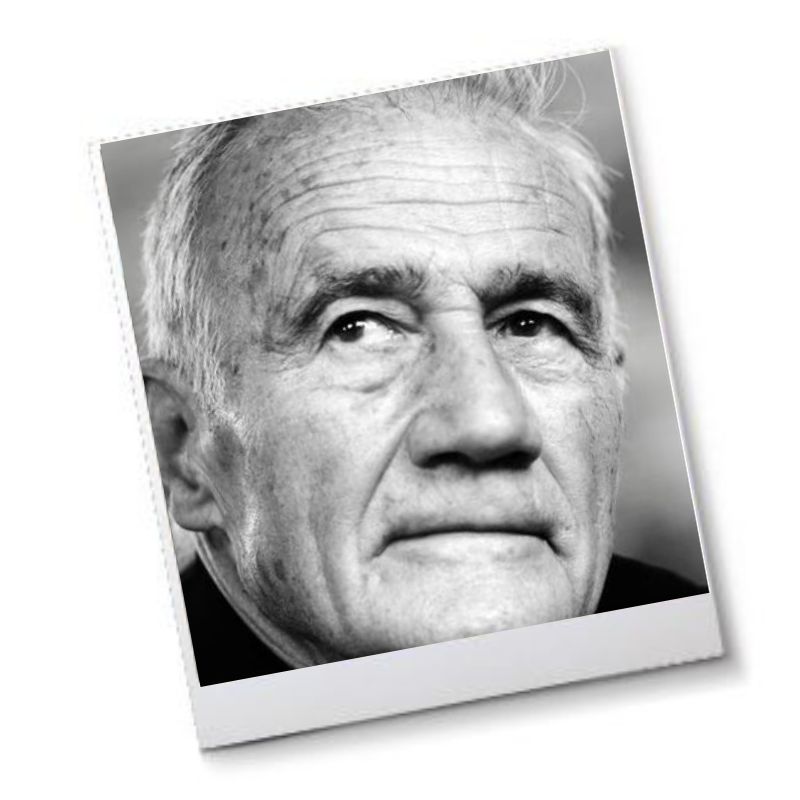
John Turner
In the 1950s and 60s John Turner, who has died aged 96 in 2023, addressed the housing challenges faced by members of rural communities in Peru when they migrated to urban areas in search of a better life. Official planning and design approaches were neither appropriate nor affordable to such people, and Turner was immensely impressed by their resourcefulness in creating their own housing developments and even complete neighbourhoods. Turner’s writings, as John FC Turner, presented Peru’s urban squatter settlements – barriadas – to a global audience as not a problem but a resource.
Predominantly poor people moved on to land on the urban periphery, subdivided it into residential plots and places for community facilities, and built their own housing using whatever materials came to hand. Settlements were improved gradually as people became integrated into the urban economy, making urban development effectively self-financed.
Such achievements were widely regarded as “unplanned” or “informal” and therefore to be removed or prevented. However, Turner argued that it was an approach that worked for the people involved, and that professionals should learn from them. His views came to influence generations of architects, planners and other built environment professionals globally and inspired a wide range of sites and services projects and in-situ upgrading programmes.
Click here to read the full orbituary published by The Guardian

